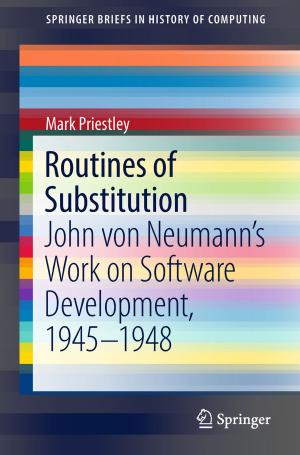User-Centric Networking
Future Perspectives
Nonfiction, Computers, Computer Hardware, Input-Output Equipment, General Computing, Science & Nature, Technology| Author: | ISBN: | 9783319052182 | |
| Publisher: | Springer International Publishing | Publication: | May 7, 2014 |
| Imprint: | Springer | Language: | English |
| Author: | |
| ISBN: | 9783319052182 |
| Publisher: | Springer International Publishing |
| Publication: | May 7, 2014 |
| Imprint: | Springer |
| Language: | English |
This work represents a milestone for the "ULOOP User-centric Wireless Local Loop" project funded by the EU IST Seventh Framework Programme.
ULOOP is focused on the robust, secure, and autonomic deployment of user-centric wireless networks. Contributions by ULOOP partners as well as invited tutorials by international experts in the field. The expected impact is to increase awareness to user-centric networking in terms, e.g., of business opportunities and quality of experience, and to present adequate technology to sustain the growth of user-friendly wireless architectures.
Throughout the last 3 years, ULOOP has developed enabling technologies for user-centricity in wireless networks, with particular emphasis on social trust management, cooperation incentives, community building, mobility estimation, and resource management.
This work will be of interest to researchers, policymakers, operators, vendors, and end-users interested in the current and future directions of user-centric access networks.
This work represents a milestone for the "ULOOP User-centric Wireless Local Loop" project funded by the EU IST Seventh Framework Programme.
ULOOP is focused on the robust, secure, and autonomic deployment of user-centric wireless networks. Contributions by ULOOP partners as well as invited tutorials by international experts in the field. The expected impact is to increase awareness to user-centric networking in terms, e.g., of business opportunities and quality of experience, and to present adequate technology to sustain the growth of user-friendly wireless architectures.
Throughout the last 3 years, ULOOP has developed enabling technologies for user-centricity in wireless networks, with particular emphasis on social trust management, cooperation incentives, community building, mobility estimation, and resource management.
This work will be of interest to researchers, policymakers, operators, vendors, and end-users interested in the current and future directions of user-centric access networks.















